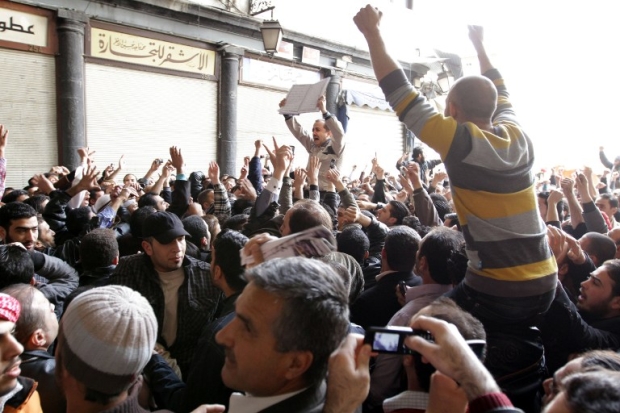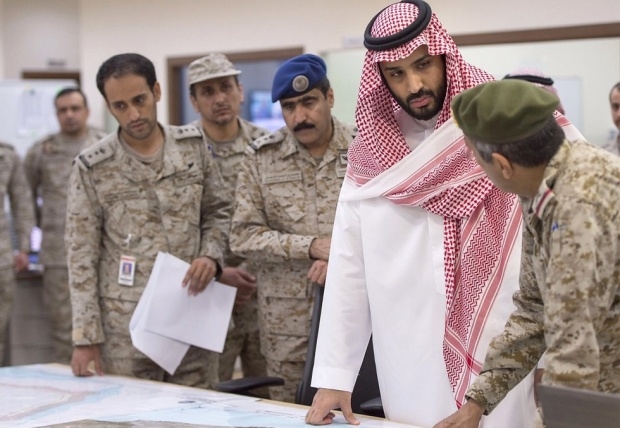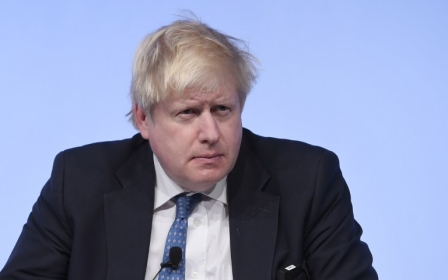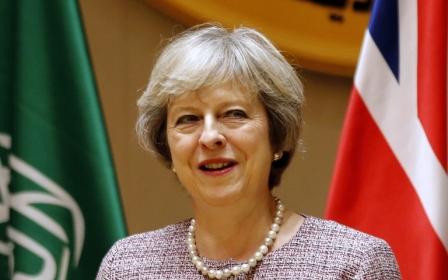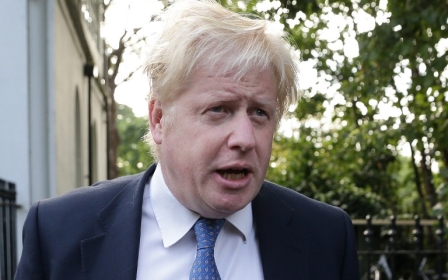Whether Boris was serious or not, it’s time for a rethink of British policy in the Middle East
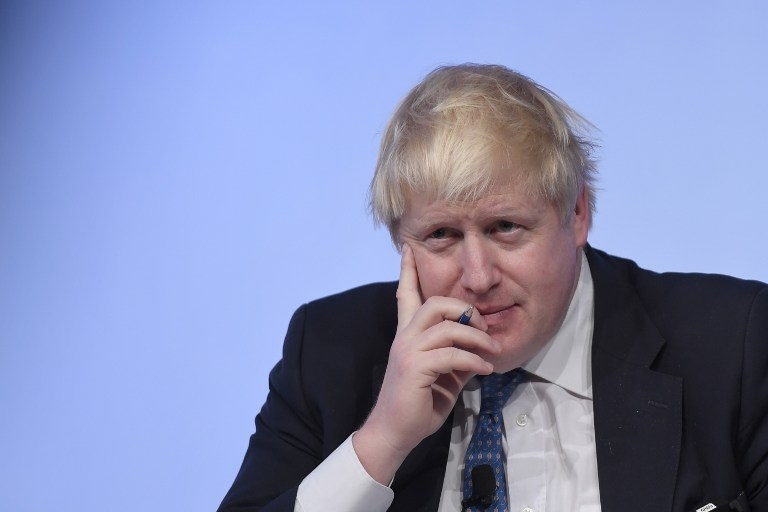
Historically, successive British governments have cherished their relations with the Saudis and have refrained from openly criticising the country. Even when British expatriates were reportedly tortured in Saudi prisons, Britain preferred to deal with these issues behind closed doors.
As the crisis in the Arab world continues to spill over beyond the region, it is time to rethink British foreign policy and the unconditional support for the remaining maharajas
Foreign Secretary Boris Johnson’s recent comments about Saudi Arabia are a departure from this cherished tradition.
Boris Johnson accused the Saudis and the Iranians of “puppeteering and playing proxy wars” while Prime Minister Theresa May was an honorary guest at the GCC annual summit in Manama.
Over two days, she intermingled with Gulf leaders, praising them and promising greater cooperation in return for trade and security cooperation. In contrast,
Johnson’s comments, albeit undiplomatic and perhaps sounding a bit amateurish, point to an important crisis that has plagued the Middle East since the Arab uprisings.
Deploying religion
At the heart of this crisis are several interrelated issues. The most important one is the increasing deployment of religion in regional politics. Three ongoing conflicts in the region attest to how this is unfolding.
A Bahraini uprising that started as a peaceful protest demanding justice and democracy ended as a sectarian conflict in which protesters were framed as Iranian puppets pursuing a sectarian Shia agenda against the Sunni rulers of Bahrain.
In Yemen, a local struggle for power between various factions developed into a civil war in which Saudi Arabia led a coalition against local Houthis who are also seen as Iranian stooges, pursuing a Shia takeover of Yemen on the southern borders of Saudi Arabia.
The carrots and sticks that saved monarchs
How did all this happen? The wave of protest that swept the Arab world in 2011 sent a chilling message to Saudi Arabia. The kingdom survived several waves of previous protest in the Arab world, but 2011 was different.
While in the past many political changes resembled top-down coups, the recent mass mobilisations across the region were bottom-up protests devoid of ideological underpinnings, but with clear quest for justice, dignity and economic prosperity - all were, and still are, in short supply.
This worried the Saudis as they rushed to save monarchies even outside the rich monarchs’ club of the GCC. From Morocco to Jordan and Bahrain, the Saudis wanted to preserve the monarchy as a genre of government, framed as stable, paternalistic, and so different from the autocratic republics.
In their efforts to achieve this goal, they resorted to a mixture of carrots and sticks. They lavishly subsidised monarchs across the Arab world, supported the return of authoritarianism in Egypt and succeeded in turning ongoing protest into sectarian civil wars.
In the last project, religion was important as a tool to obscure underlying economic grievances and demands for a better life. Conflicts are no longer seen as the protest of the marginalised, disenfranchised and neglected constituencies but an eternal war between so-called true Muslims and unbelievers from within the diverse world of Islam. Sectarian proxies were sponsored, armed and deployed.
The result was a derailing of an historical moment in the Arab world that promised to end decades of dictatorship.
Redirected agitation
Saudi Arabia had two important weapons: substantial funds and an old foreign policy pledge to protect Muslims worldwide. The Arab uprisings offered a great opportunity to flex muscles and honour the pledge. This helped it absorb local dissent, especially among its various Islamists, who had to be appeased by redirecting their agitations abroad.
The moment the Saudi war on Yemen started, all Saudi Islamist voices were silenced. Their zeal is now directed towards supporting the leadership in its historical war against the Shia other. The sectarian agenda of some Islamists was momentarily honoured.
However, in Syria, the situation was different. Iran and other Shia militia wanted to preserve a regime that had already distanced itself from the Gulf leadership. Saudi Arabia saw the uprising as a quick opportunity to bring Syria back into the Gulf patronage networks and cut its ties with Iran.
This initially appeared possible but five years later the project has stumbled and resulted in the worst refugee crisis that the Arab world has seen since the Palestinian exodus in 1948 and 1967.
Holding the Arab world hostage
While proxy wars drain the resources of the sponsors, they result in devastating humanitarian crisis in conflict zones. Yet when they are fought with religious underpinnings they increasingly turn into prolonged quagmires that threaten to have an everlasting impact on the countries where they take place.
The current crisis in the Arab world where both Saudi Arabia and Iran have played with the flames of religion threatens to change the Arab world forever
Proxy wars during the Cold War took a long time to die down, but eventually they became confined to history books. The current crisis in the Arab world where both Saudi Arabia and Iran have played with the flames of religion threatens to change the Arab world forever.
As communities experience the violence of sectarianism, they may not be immediately ready to heal their rift and rebuild their lives as citizens rather than sectarian subjects.
Big men - or a rethink?
As for Johnson’s comment about the need for Big Men in the region to deliver a national agenda beyond sectarian divides, one cannot but remember how Britain had fought such Big Men when they emerged after that moment of colonial struggle.
Had Johnson correctly read British colonial history, he would have realised how Britain always cherished and promoted maharajjas, tribal chiefs, emirs and kings at the expense of national Big Men
We all still remember how Britain fought someone such as Egyptian Gamal Abel Nasser and Iranian Mohammad Mosaddegh when both tried to become national Big Men.
Had Johnson correctly read British colonial history, he would have realised how Britain always cherished and promoted maharajjas, tribal chiefs, emirs and kings at the expense of national Big Men.
Johnson’s speedy and impulsive comment may not reflect a serious reconfiguration of British foreign policy, as the British government immediately distanced itself from his spontaneous yet undiplomatic and embarrassing statement.
Nonetheless, as the crisis in the Arab world continues to spill over beyond the region, it is time to rethink British foreign policy and the unconditional support for the remaining maharajas of the Arab world.
- Dr Madawi Al-Rasheed is a visiting professor at the Middle East Institute at the National University of Singapore. She has written extensively about the Arabian Peninsula, Arab migration, globalisation, religious transnationalism and gender. On Twitter: @MadawiDr
The views expressed in this article belong to the author and do not necessarily reflect the editorial policy of Middle East Eye.
Photo: British Foreign Secretary, Boris Johnson, attends the Mediterranean Dialogues (MED), a three-day conference on security in the Mediterranean region, on 1 December 2016 in Rome (AFP)
Middle East Eye propose une couverture et une analyse indépendantes et incomparables du Moyen-Orient, de l’Afrique du Nord et d’autres régions du monde. Pour en savoir plus sur la reprise de ce contenu et les frais qui s’appliquent, veuillez remplir ce formulaire [en anglais]. Pour en savoir plus sur MEE, cliquez ici [en anglais].



